My role is all about helping parents, children, and the wider Sheffield community to eat a little healthier, which is vitally important for physical and mental health. We’re funded by Sheffield City Council so we’re part of their overarching Food and Wellbeing strategy. There are a number of other projects running that all feed into the same mission but with slightly different angles. Mine is about the educational side of things – taking a whole school approach to food and nutrition.
I’ve always wanted to work on something I was really passionate about. So, a few years ago, I went back to university as a mature student to gain my masters in Nutrition and Public Health. The Eat Smart Sheffield programme works with all schools across the city – primary, secondary, and special schools – suggesting how they can make improvements to their food culture. We hold meetings and workshops, looking at school meal provision and whether pupils are having opportunities to grow and cook food.
“You just need one person who is passionate about children eating healthily”
We also look beyond the school gates as parental engagement is so important, especially in primary schools. We can run sugar awareness assemblies to get the children involved but we need to get to the parents as they’re the ones doing the shopping and cooking. So we’ll host webinars or workshops, send out newsletters and share healthy eating tips via our weekly column in the local paper.

Schools have little money, minimal time, few resources, and limited capacity to focus on nutrition, including sugar. They do understand what we want to do, but it’s hard without the support in place. This can mean that sometimes the progress is quite slow. Though you just need one person who’s really passionate about children eating healthily and they will make it happen.
“The most challenging thing about changing people’s habits is the wider environment”
If you’re trying to reduce obesity and improve oral health, you’re up against the environment we live in. When people have takeaways on their doorstep and that’s all they have, that’s what they’re going to eat. We know there’s a Greggs and a Subway on every corner and it’s all cheap, tasty food that’s addictive. Junk food advertising also adds to the problem and supermarkets putting offers on unhealthy food rather than healthier choices.
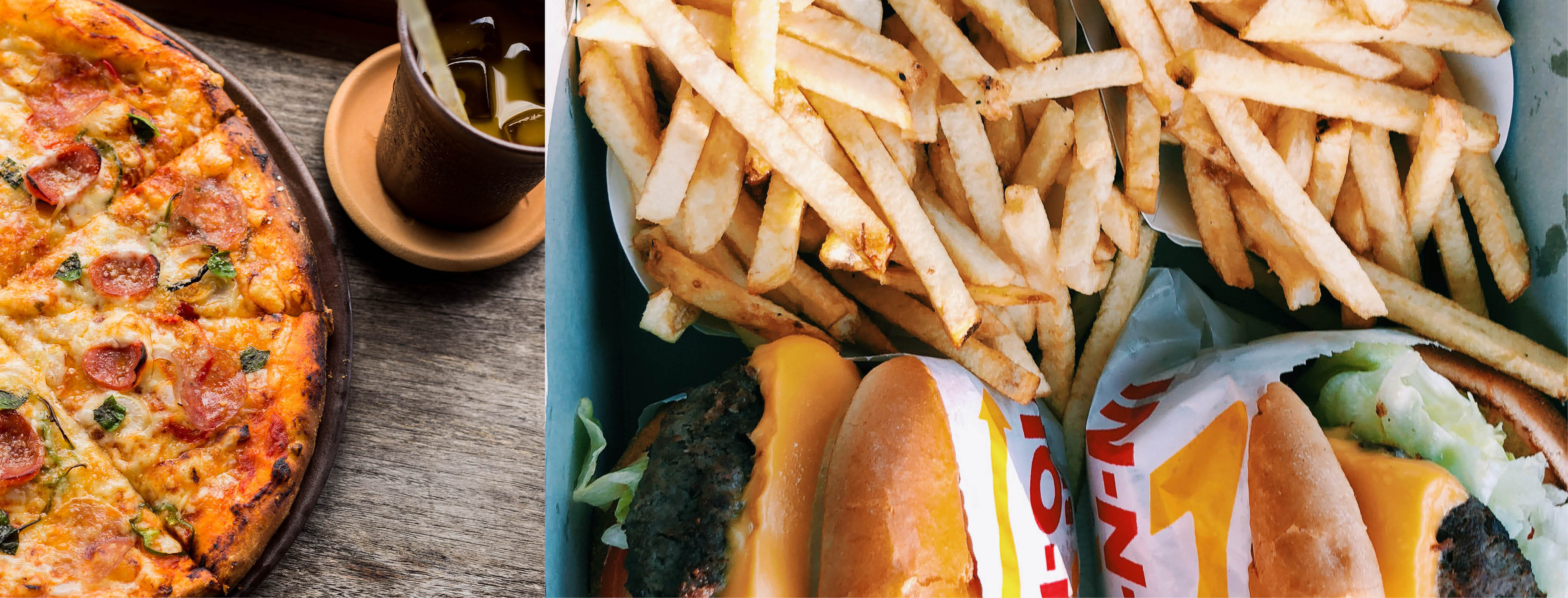
The cost-of-living crisis is making things worse as many people feel it’s easier and cheaper to give children processed food. We run webinars on money-saving tips like batch cooking and savvy shopping, but there will always be people who don’t have the time, knowledge, skills or equipment to do that. For example, not everybody has a fully fitted kitchen with everything they need to cook from scratch. Some people only have a microwave or a kettle. Energy costs are a barrier as well. If people think they can’t afford to put their oven on, they won’t cook.
“We’re not saying you can never eat sugar. It’s about raising awareness”

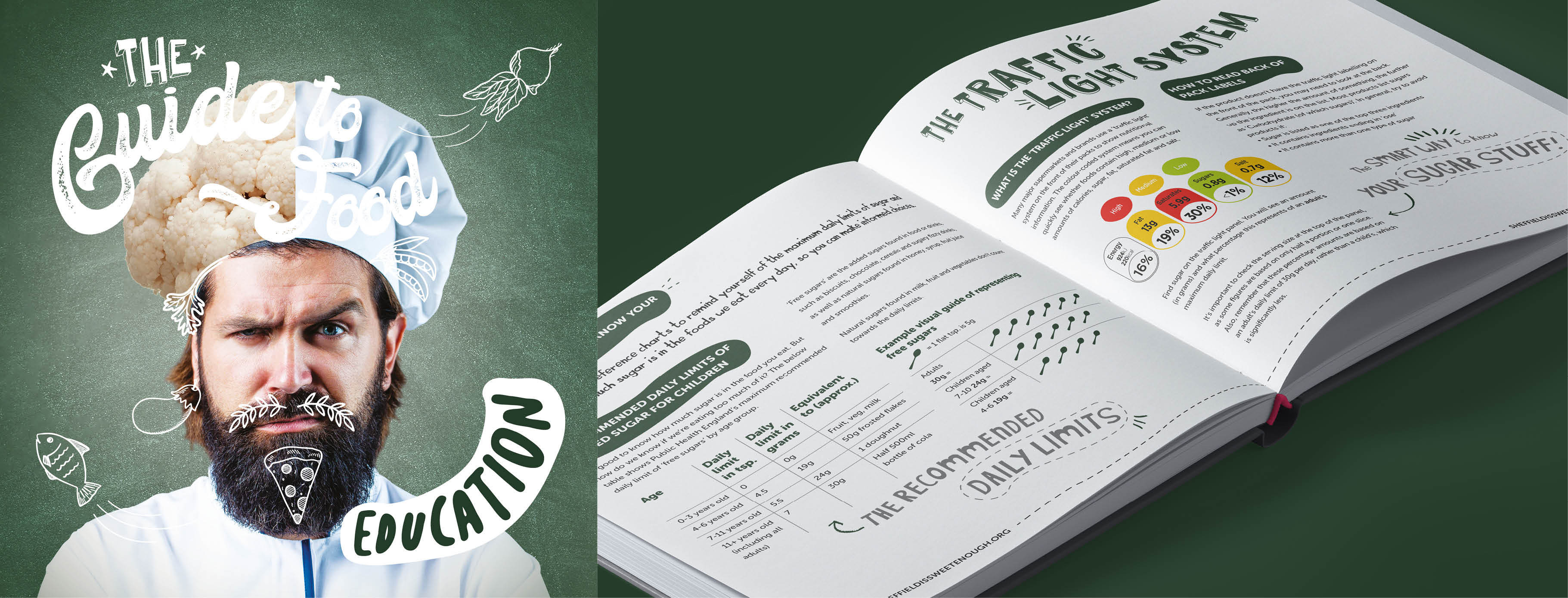
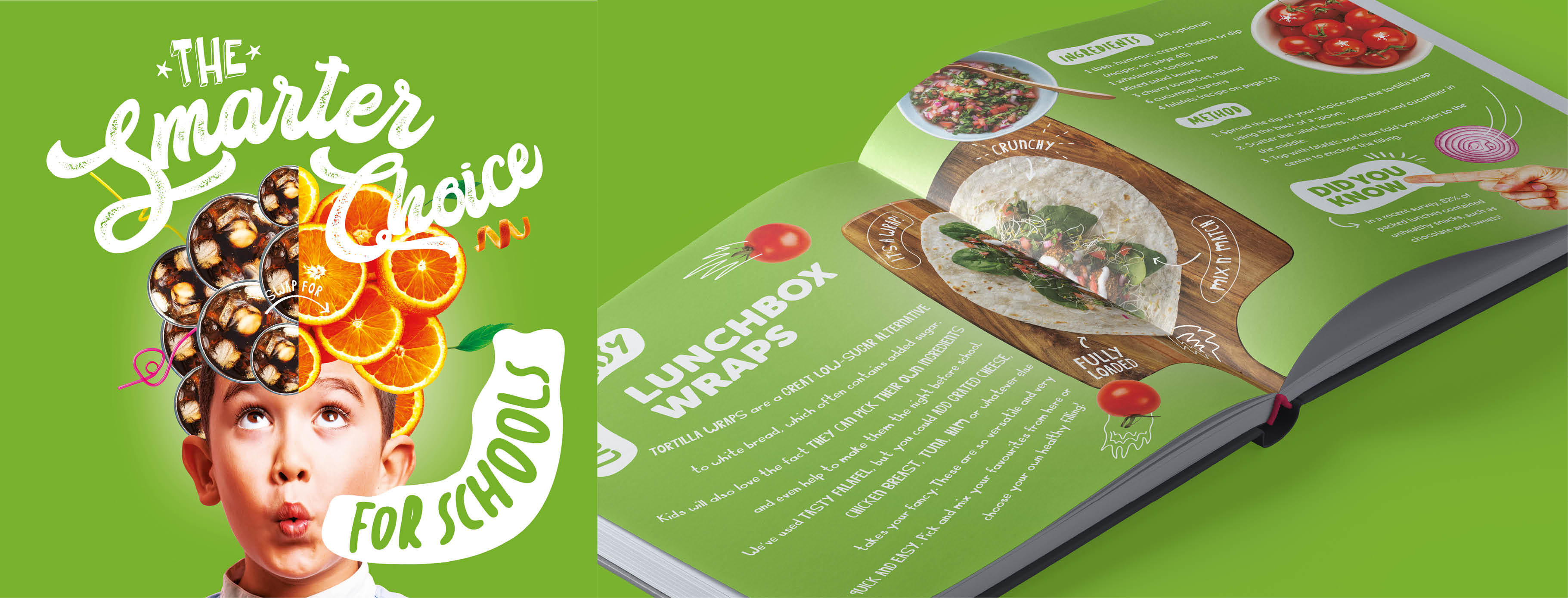
We’ve been working with Sheffield is Sweet Enough from the beginning trying to share our collective message on sugar. We use their materials to educate people and have distributed the recipe book created by the community at school fairs and events. We have also run several of the low sugar assemblies which schools have loved. The resources are really good with bright, eye-catching visuals that the children really engage with.
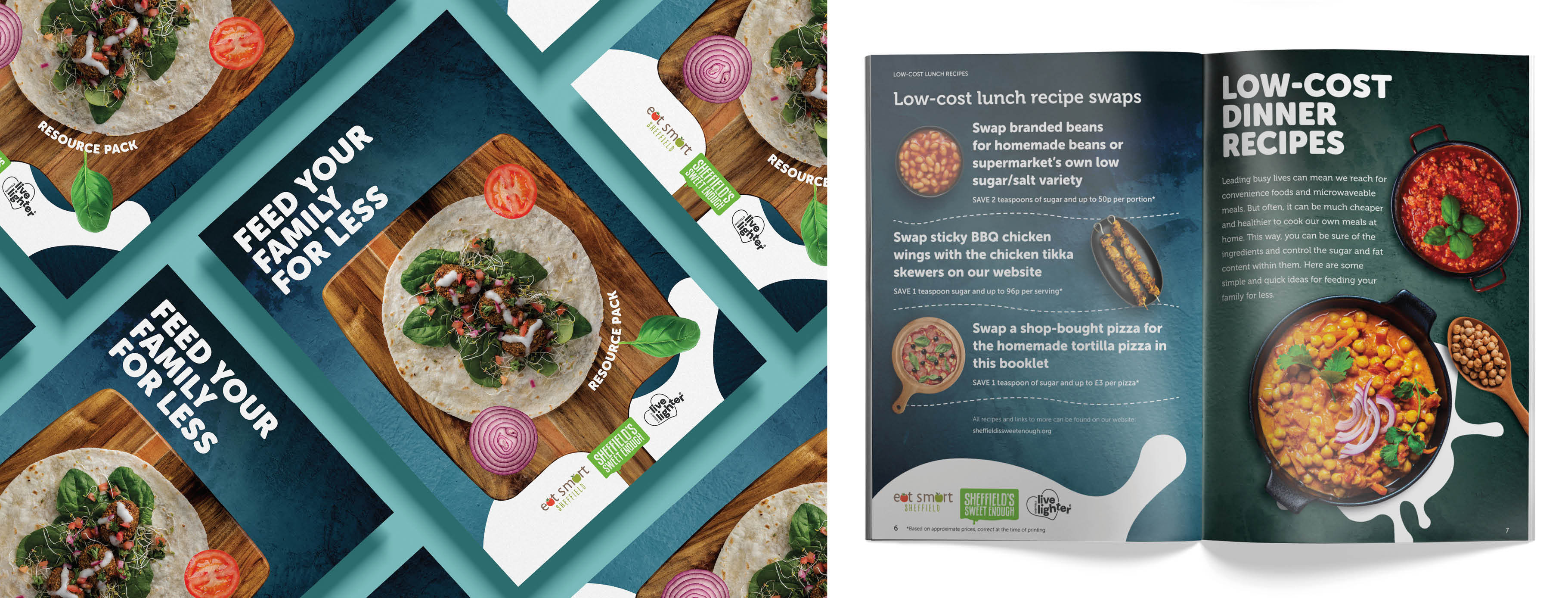
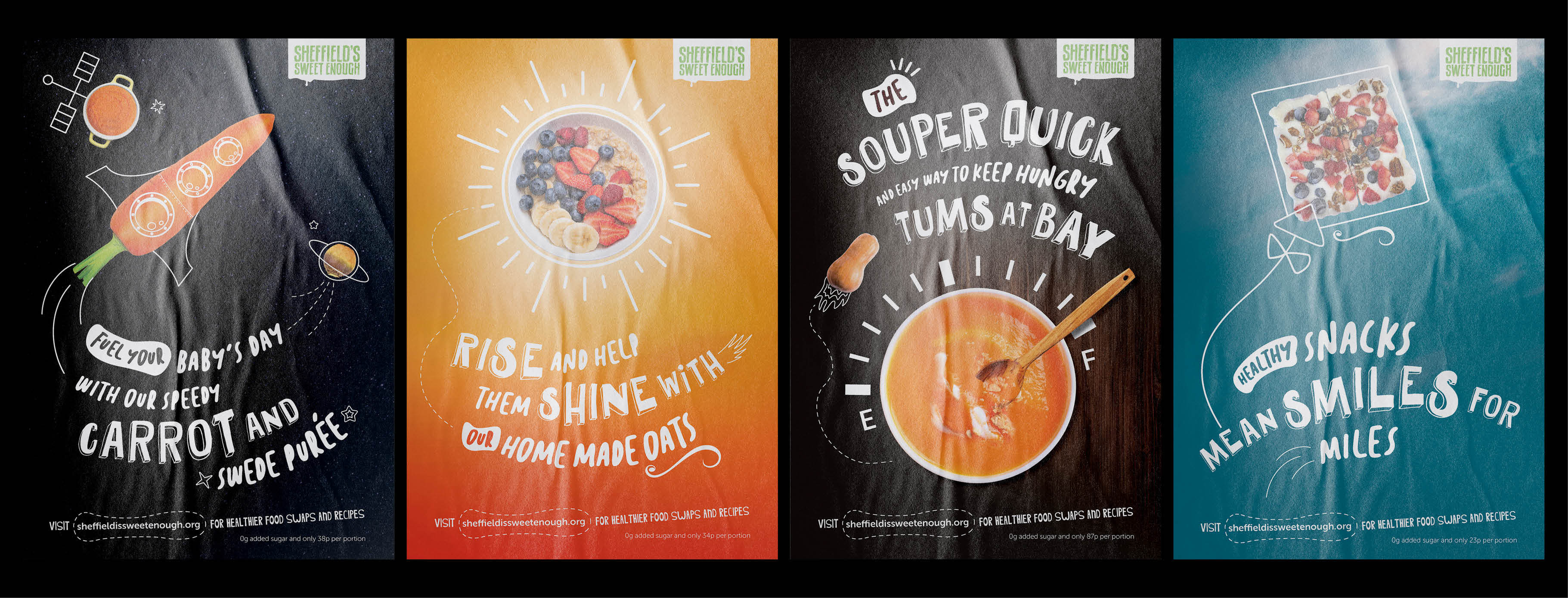
We’re not saying you can never eat sugar – because that’s practically impossible and it’s all about balance and moderation. We just want to raise awareness about how much sugar is in certain food and drinks. We’ve given out the ‘Feed Your Family for Less’ booklets at our parent workshops. We also pass on the posters to schools and signpost people to the Sheffield is Sweet Enough website.
“We can all do our bit to make a difference”
Even if we’re educated about sugar, we can still find it a challenge sometimes to eat the right things.
I’m a Mum of two so I do try to cook at home with my children and involve them in the process. It’s not always easy but they are quite interested in baking so I try to think about how we can make it a little healthier. I do want them to learn how to make meals.
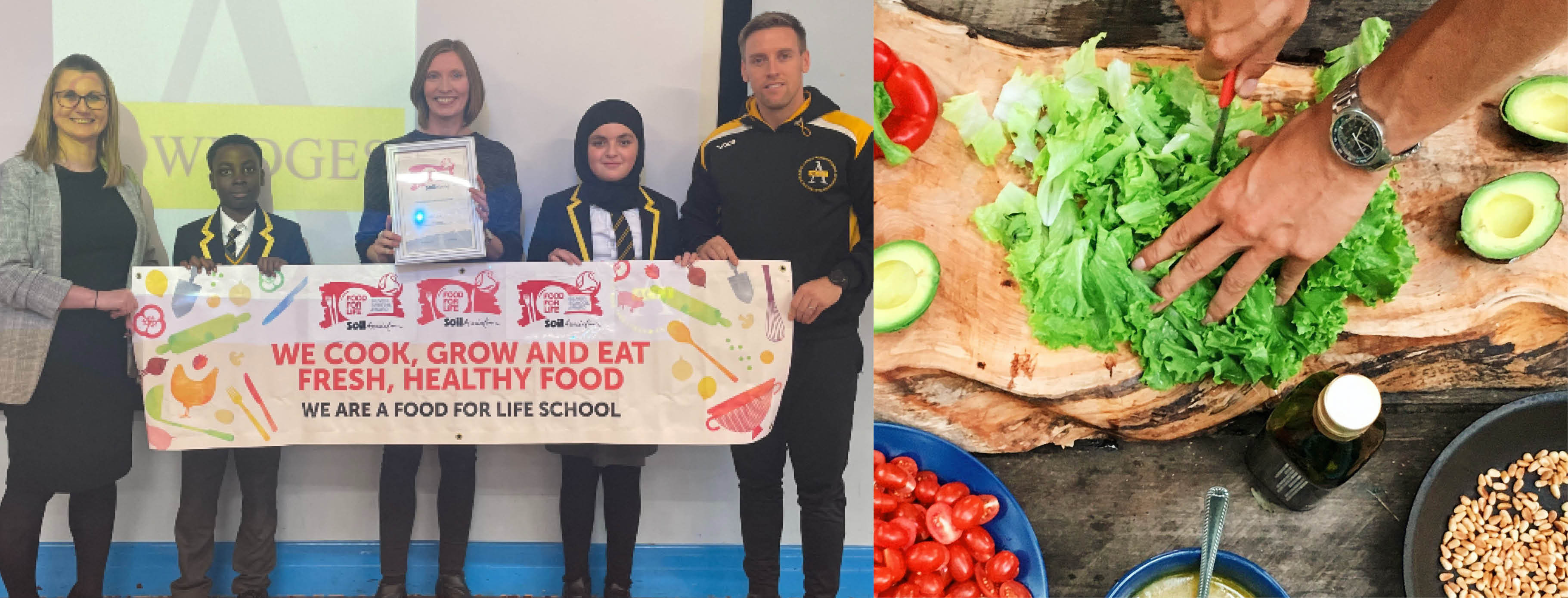
We need to teach more cooking in schools. It’s on the curriculum, but it’s not necessarily a priority. We need to think about people’s skills, time, and equipment. It’s also about making cheap, affordable ingredients accessible. Not everyone has a big supermarket on their doorstep. If you’re relying on your corner shop, you’re more likely to be eating processed food than fresh fruit and vegetables.
There are so many factors that lead to people eating too much sugar and it’s not an easy fix. We can’t change everything but we can all do our bit to make a difference.

